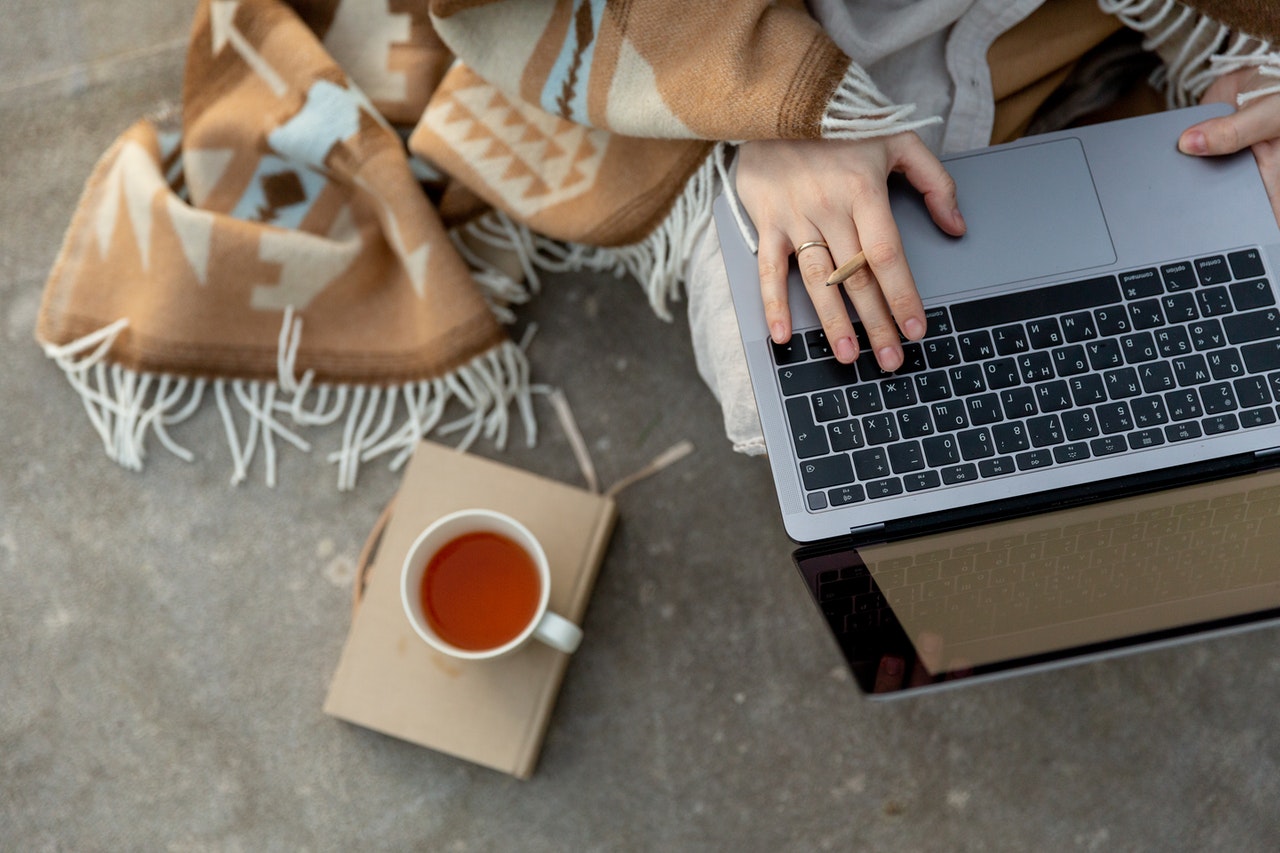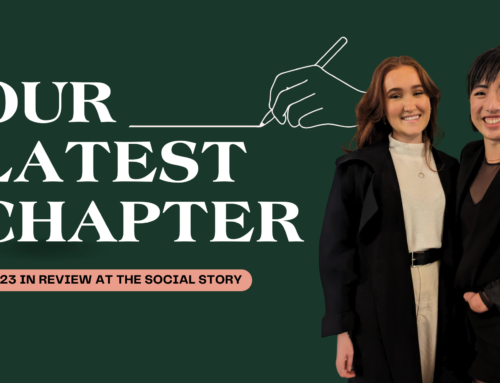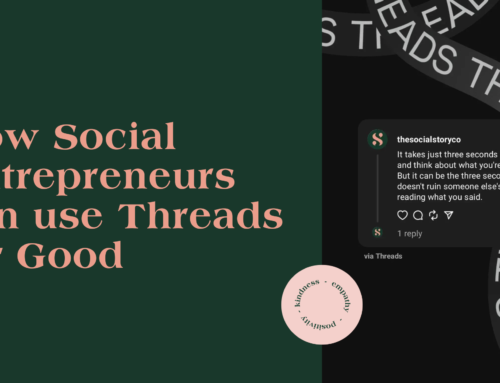Key Takeaways:
– We should be more conscious of the information we consume
– Know when to step away, but balance that with staying informed and connected
– It’s not just about what content we take in, but what content we put out as well.
The plethora of information available on social can be overwhelming at the best of times. It’s been no secret that social media has created waves of negativity, from trolls to body image issues. But the anxiety that can come from the overload has been aggravated during the time of COVID. And what do the experts say? Take a break. According to the WHO’s #HealthAtHome Mental Health measures, they recommend, amongst other things:
- Reducing your intake of news that makes you feel anxious or distressed by seeking the latest information at specific times of the day, once or twice a day if needed.
- Being aware of how much time you spend in front of a screen every day. Make sure that you take regular breaks from on-screen activities.
- Using your social media accounts to promote positive and hopeful stories. Correct misinformation wherever you see it.
So, case closed. Let’s wrap it up. Be mindful of what you’re consuming and we’ll all be better for it. But this isn’t just about adjusting to a ‘new normal’ or just doing what we need to do to get through quarantine. In fact, it shouldn’t take a global pandemic for us to be more mindful of the media we consume.
This is not to say that we get rid of social media altogether and go off the grid. We cannot deny that it also has its uses. In that same article from WHO, they also stress the importance of staying informed and staying connected and social has become an undeniable way in which we can do so. Social has very much facilitated more innovative ways to stay positive in this time – from fun content on Tik Tok to finding ways to give back and support local businesses doing it tough, to even just staying connected with your friends in increasingly easy ways.
But this time of social distancing has given us a window into how social media can be used for good. And this is as good a time as any to stop, take note and reevaluate the ways we use social media to make it a more positive impact in our lives.
It shouldn’t take a global pandemic for us to be more mindful of the media we consume. Here are our top 5 tips for being more conscious about your social media use.
1. Be discerning and get educated
The more we rely on our social media to tell us the news, the more it is important to become more media literate. While Twitter and Facebook start stepping up to include more factchecking into their platforms, this does not detract from our responsibility to do the same. It can be all too easy to quickly chime into the conversation or share the hashtag over an issue. But without knowing all the facts, how are we doing any good?
Take the Jussie Smollett case. You probably first heard of his name when you heard he’d been abused. You maybe even looked to the likes of Chrissy Teigen who were quick to yell for justice and said, yes, I’m behind that cause. But the case ended up being much more complicated than it first appeared and celebrities scrambled to detract their statements.
So make sure you know what you’re talking about, and what you’re reading.
- Check your sources and – particularly if you’re not sure – do a quick google search to just find another few sources that corroborate.
- Take a breather. With a 24 hour news cycle, information that can oftentimes be incorrect and/or harmful just gets blurted out to have something to report. Unless you yourself are a journalist, it’s ok to wait until you know more.
- Don’t just read the headline, read the article. A quick retweet on a fake news article can do more harm than good.
- Listen to valid stories. Social gives us the opportunity to hear the nuanced stories of people who have been long silenced. Withhold your judgement when people of colour or other minorities share their experience. Allow them this platform to educate you back.
- Demand our journalists and media platforms to be better at being bullshit detectors. But do not rely on them alone to be the final safeguard of truth.
2. Social distance from the negativity
Unfollow the accounts that make you feel shit. We can all get sucked into the seemingly perfect lives of influencers – from their picture-perfect holidays to their perfect bodies to the amazing food and everything in between. But notice what that does to your head. As pastor and author Steve Furtick says, “the reason we struggle with insecurity is because we compare our behind-the-scenes with everyone else’s highlight reel.”
Social media can put the triggers that set off our poor self-esteem right into the palm of our hand, ready to deliver endless amounts of content to feed that ugly inner monster constantly. Don’t give it the power. Be careful with what you see constantly on your newsfeed and unfollow or block what does not serve you.
But this doesn’t mean turning off everything we don’t agree with. Particularly with news, we can fall too easily into ignoring all the dissenting voices that could help us challenge how we think and give us an insight into the wider conversation away from the screen. Be aware that the more you curate your newsfeed, the more the filter bubble comes tightly wound around yourself. So just remember, there’s more to what you’re seeing – you just don’t have to see it all the time.
3. Take meaningful breaks
Ok so your newsfeed is starting to look a little better, but frankly, sometimes that’s not enough. More than ever, this pandemic has reminded us the need to log off and digitally detox once in a while. But it’s not just about locking your phone away from you and skipping away into the rice fields. If you’ve ever experienced the anxiety of not having your phone near you, or hearing the phantom ring from afar, you know that’s not enough.
Firstly, it’s oftentimes impractical to just put our phones away. Whether you just need to keep it around for emergencies, or it’s for work as we experience as a social media agency, it’s hard to just throw our devices away and be done with it. Instead, we look to do things more targeted. Scheduling time throughout our week where we are not able to be contacted and we do put our phones away means that we can also warn others (and especially our clients) that we’re not in danger and dropping off the face of the earth, but taking some time out. And that’s ok.
Secondly, like with any fad diet, a cold turkey weekend won’t do you any good in the long run. So approach your digital detox gradually. Be aware of how much screen time you’re using with your phone and platform screen time managers. Put realistic boundaries around it. Use your time away more productively (unfortunately sleeping through it does not count).
For more tips, check out @TheSocialGoodClub’s #DigitalDistancing tips that have covered things from going offline with your friends to keep each other motivated and accountable to finding creative ways to plan out your tech-free day.
4. Question what you put out
What you take in also comes from what you put out. What are you posting? How will it affect the people who read it? Are your actions contributing to misinformation or cancel culture?
From a simple retweet of an article that could go wrong, to also only projecting your highlights on social media, you put out into this digital realm as much as you take from it. It’s useless to be angry about the perils of social media and stay on it if we do not actively work to make it better ourselves. We have to take responsibility that social media is just an amalgamation of content individuals like you and me are putting out.
So think before you post. Ask yourself these questions:
- Is this authentic to who I am?
- Who will see this and how will it make them feel? How am I contributing to the wider conversation?
- Is what I am saying accurate? And if it’s my opinion, is this the best format to actually tell this story?
- Would I say this to a person to their face? Do people really need to hear it?
- Why am I posting this?
5. Know your motivations
So we’re going to expand that last point just a bit further because it truly does beg for it’s own little write-up. Why do we even post on social media? Yes, it’s a great tool to connect with people – whether it’s family overseas or people who are just like you but you were never able to find in your day-to-day lives (niche fandoms, I’m looking at you).
But as social media has become more entrenched in our lives, it’s created a whole new social structure of what we deem as important and valid. Whether it’s the number of likes you get or even just that one viewer you want on your story, we can all admit to some tangled motivations to why we post. It’s ok – it’s human nature to be seeking validation. But everything needs to be in moderation and realising that social media can amplify this to harmful extremities is the first step to recovery.
Understanding why we post on social media is just as important for the brands we work with in our agency, to each individual. And while we encourage you to get in touch so we can help you develop your why as a brand, here’s a word to the wise for all of you. Tell a story.
That’s probably no surprise that we go back to storytelling for an agency called The Social Story. But we truly do believe in our mission. Storytelling is the most powerful way to get ideas out into the world (thanks Robert Mckee for that nugget). It creates emotional connections between storyteller and reader that help us build empathy, understanding and hopefully tolerance. It’s how we come to realise the universality and yet uniqueness of the human experience and allow ourselves to be challenged about our own identity.
Good storytelling over social media has allowed us great moments of humanity – from Some Good News bringing positivity during this pandemic to the real experiences of people of colour around America right now so that we might understand and take action in this crisis. So tell your story not just for the likes on Instagram; but because your story could have the power to change the world.
How will you change the way you use social media during this pandemic and beyond?
Featured photo by Tatiana Syrikova from Pexels






[…] The content we consume is important – and we need to diversify our feeds. We need to actively choose to follow minorities and […]
[…] up to the big dogs and think our work is done there. Every individual has to take responsibility to becoming more media literate and critical over the content they consume through social. But with all the technology to send you programmatic ads or turn your face into a […]
[…] help either. So if you haven’t already unfollowed all these counts, at least take a break. Set your phone aside for a day and take the moment to practice a bit of self-care. You’ve earned […]
[…] media is feeding you, it’s time to reevaluate your whole use of the platforms. But let’s start with the small changes. Make an effort to show the ugly with the good. Unfollow accounts that aren’t doing you and your […]
[…] media is feeding you, it’s time to reevaluate your whole use of the platforms. But let’s start with the small changes. Make an effort to show the ugly with the good. Unfollow accounts that aren’t doing you and your […]
[…] in raising our own consciousness of how social media was affecting us, we wanted to help others use social media better – broadening our appeal as an ‘agency’ beyond just clients but individuals who […]